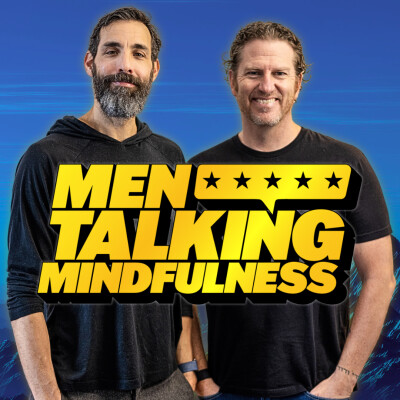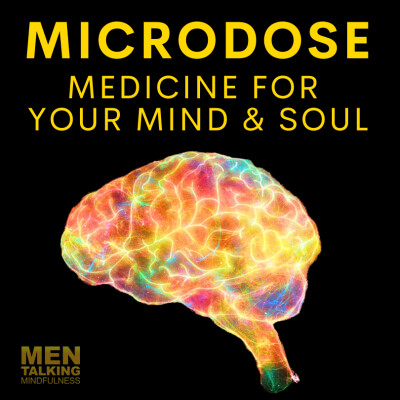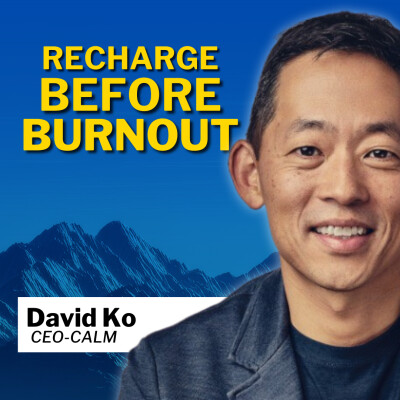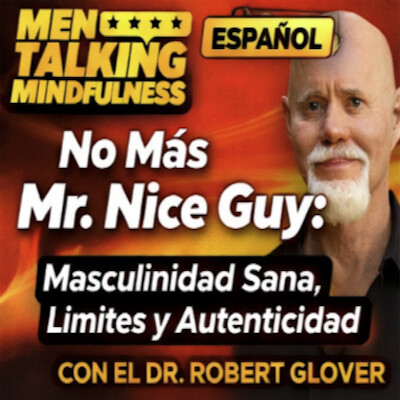Speaker #0Get ready for another microdose. And hey, if this information is jiving with you, then check out the full episode. The link is in the show notes. Enjoy the ride. And your normal baseline level where your cognitive brain networks function the best, as well as your physiology, is engagement of your parasympathetic nervous system. And that's where we're meant to live. We are open, we're thoughtful, we have access to our executive control network, which is associated with prior experiences and memories. And it gives us a whole variety of options of what is possible, not the one that is most likely to allow us to survive. So they're quite different. And this plays an important role in terms of our ability to manifest. And it's not to say that you cannot manifest being in a fear mode, which many people try to do. the most likely way for you to manifest and the most likely way to have your brain networks function is when you engage your parasympathetic nervous system. And as you know, the very nature of mindfulness or the breathing exercise that we did earlier is to shift you from engagement of the sympathetic nervous system to engagement of your parasympathetic nervous system. And again, when that happens, magic happens. And what I mean by that is when you're in the mode of the rest and digest system, you're open, you're thoughtful, you're generous. Those parts of your brain that are associated with pleasure and reward are activated because you are. caring for others. You're looking through the lens of how to be helpful. And as a result, your pleasure and reward systems are activated by neurotransmitters such as oxytocin, which many of us call the love, bonding, nurturing hormone. And just as importantly, your physiology also works at its best. There's something called heart rate variability that some of your listeners may know. And heart rate variability is important. Now, many people confuse it with heart rate. And the difference is as follows. Each of us can have a heart rate of 60, as an example. If you are stressed, anxious, or have activated your sympathetic nervous system, you actually get a decrease in your heart rate variability. And what I mean by that is that the... inter-beat time, or the time between beats, stays consistent at about once every second. If you have engaged your parasympathetic nervous system, actually there is variability in the heart rate, which increases the more calm you are. And that variability, as an example, could be a heartbeat of every tenth of a, or eight-tenths of a second, versus, let's say, 1.2 seconds. And what happens is that when you're stressed and anxious, that actually is associated with the decrease in heart rate variability and a very, very high likelihood of sudden cardiac death. But other effects on your physiology relate to, as an example, cardiac function itself, your blood pressure, the expression of inflammatory proteins. which are associated with a lot of chronic disease states. It affects your immune system when you're in the parasympathetic mode by strengthening it. It decreases the production of stress hormones such as cortisol. So all of your physiologic processes work at their best if you can be in the state of mental calm. And that is actually even associated with an increase in one's longevity. So why is this important? Well, I mentioned the love and the fear mode. When you're in the fear mode, oftentimes when people look through the lens of what I want or the me, that is a fear narrative because it's. one that occurs out of insecurity. It occurs out of a belief that you want external affirmation from others. to make yourself feel okay. And this is why you see a subset of people who like to display their wealth, their power, their position, because they have an emptiness inside, and it is not being filled. And as much as they try to demonstrate that they're okay, and which oftentimes is to hide insecurity or shame, No matter what anyone tells them, they will never get what they want. And that is happiness or a sense that they're okay. The only way you can be okay is if you give yourself permission to be okay. But it does not come through external affirmation. And that's why, as an example, you see so many individuals who are fixated on trying to show people they're okay through... displays of wealth, power, and position. Now, what's more sad, though, is because of the nature of our society is that people believe that narrative, and therefore, they believe that if they just get that, that'll fix all their problems. And we have seen from, if you want to simply do a examination of the lotteries, when people suddenly get, quote, unquote, everything I wanted, they get all of this money. For many of those people, that's the absolute worst thing they could get because it destroys their lives, because they keep thinking that, oh, this money is going to buy this. I'm going to have that. I'm going to be happy. People are going to like me. And it's actually, unfortunately, just the opposite. But that is the case when you are trying to fill the emptiness because of your own fear and anxiety. Conversely, When you connect with others, when you care for others, when you look through the lens of how can I be of service, how can I be helpful, this is how we evolved as a species. Because if you look at our quote-unquote nuclear family, if you will, unlike other species, we don't run off or into the jungle or the forest fully whole, ready to survive. Our species requires us to be cared for. for 10 or 15 years. And the nature of how we have a genetic imperative to care is because when we care, all of our brain cognitive systems work their best. We are rewarded for caring by the release of different neurotransmitters or hormones such as oxytocin, which makes us feel good about ourselves and feel good about caring. Now, when I make these statements, content. contrasting the two perspectives, a number of people will sit there and go, well, Jim, you're like acting like having a good life or driving a Porsche or living in a mansion is wrong. And that's not what I'm saying at all, because I have many of those things. But the difference is, if all of those things go away tomorrow, in no way does that. change how I see myself as a human being, how I love myself, how I accept myself. Nothing changes. They're wonderful while I had them. I thoroughly enjoyed them. But my view of myself and my view of the world does not change if I don't have them. Conversely, you get people whose whole lives are centered on that. And when those are taken away, they feel that They are no longer the person because they've been fixated on something that gives them nothing except a belief that they're important if they have them.





